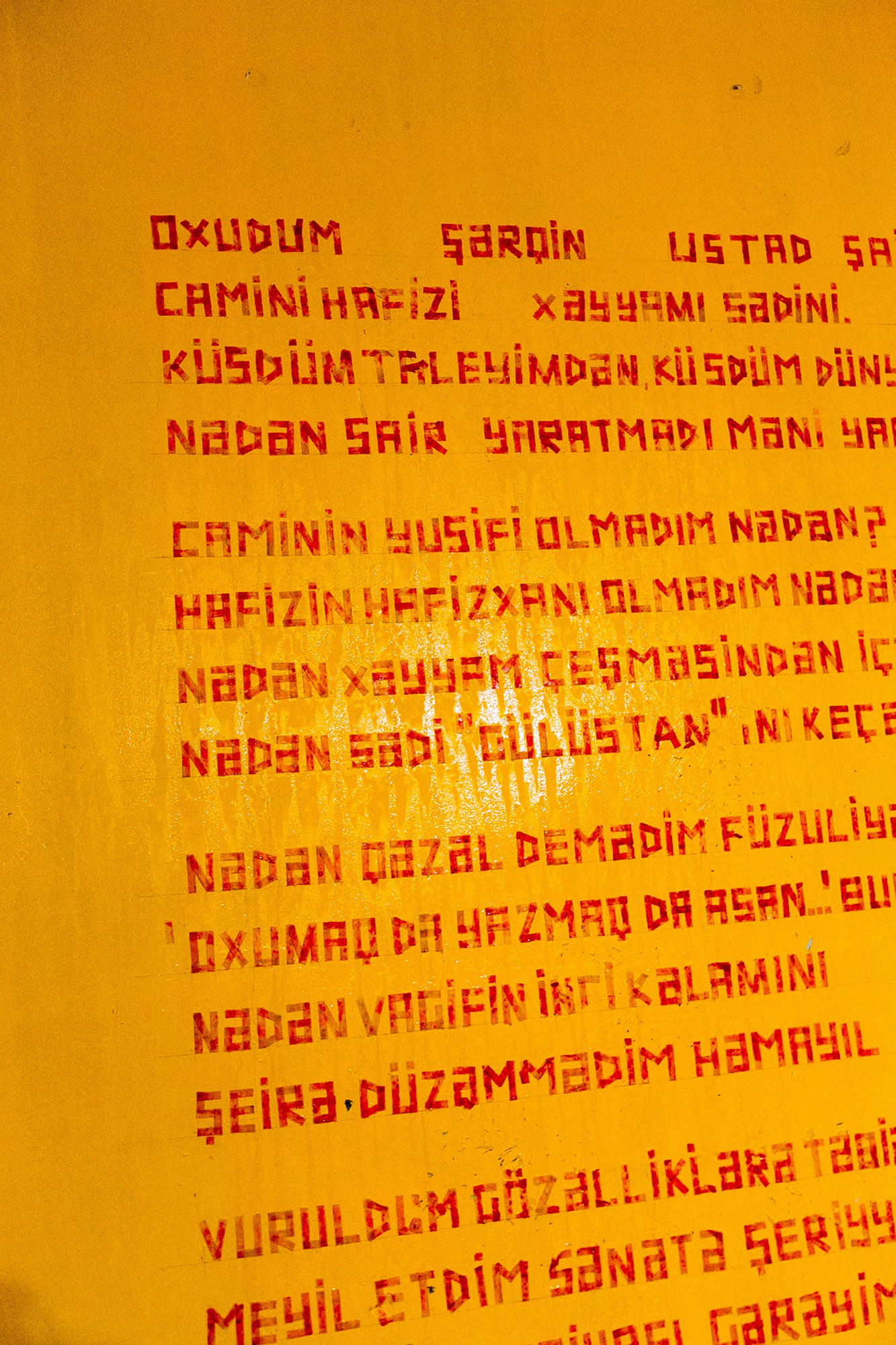Molotov Gulab | 2017 | Performance
Farhad Farzaliyev’s solo show intertwining chemistry and art practice. The project is inspired by Yusuf Mammadaliyev (1905 Ordubad, Nakhchivan - 1961 Baku, Azerbaijan), grandfather of the artist, well known for his scientific inventions as a chemist, less known for his poetry that he followed with the same enthusiasm. Among his numerous discoveries during the war, one of the most famous was an incendiary mixture of chemicals that could be used to make self-igniting petrol bomb, also called Molotov Cocktail.
The exhibition will combine poetry with a performance act of throwing rose water (Gulab) embodied as Molotov Cocktails against the walls. This act of rage reveals phrases of poems that are written with Litmus papers and chemical solutions , especially developed for the exhibition, and become visible when getting in touch with liquids. Rose water is not only a reference to the artist’s grandfather place of birth but also to the symbolic meaning of gentleness, softness and love. Aside from their sensual captivity roses hold great importance for religion, to be considered as the flower of heaven. They had strong influence on history’s most famous poets, such as the great Sufi, Rumi, describing the mystical path.
The performance plays on notions of fragility, violence and beauty, kitsch and nostalgia, rage and love. It talks about contradiction, resistance and the complexity about how to deal with the traces of the past from a personal and collective perspective.
The exhibition will combine poetry with a performance act of throwing rose water (Gulab) embodied as Molotov Cocktails against the walls. This act of rage reveals phrases of poems that are written with Litmus papers and chemical solutions , especially developed for the exhibition, and become visible when getting in touch with liquids. Rose water is not only a reference to the artist’s grandfather place of birth but also to the symbolic meaning of gentleness, softness and love. Aside from their sensual captivity roses hold great importance for religion, to be considered as the flower of heaven. They had strong influence on history’s most famous poets, such as the great Sufi, Rumi, describing the mystical path.
The performance plays on notions of fragility, violence and beauty, kitsch and nostalgia, rage and love. It talks about contradiction, resistance and the complexity about how to deal with the traces of the past from a personal and collective perspective.


